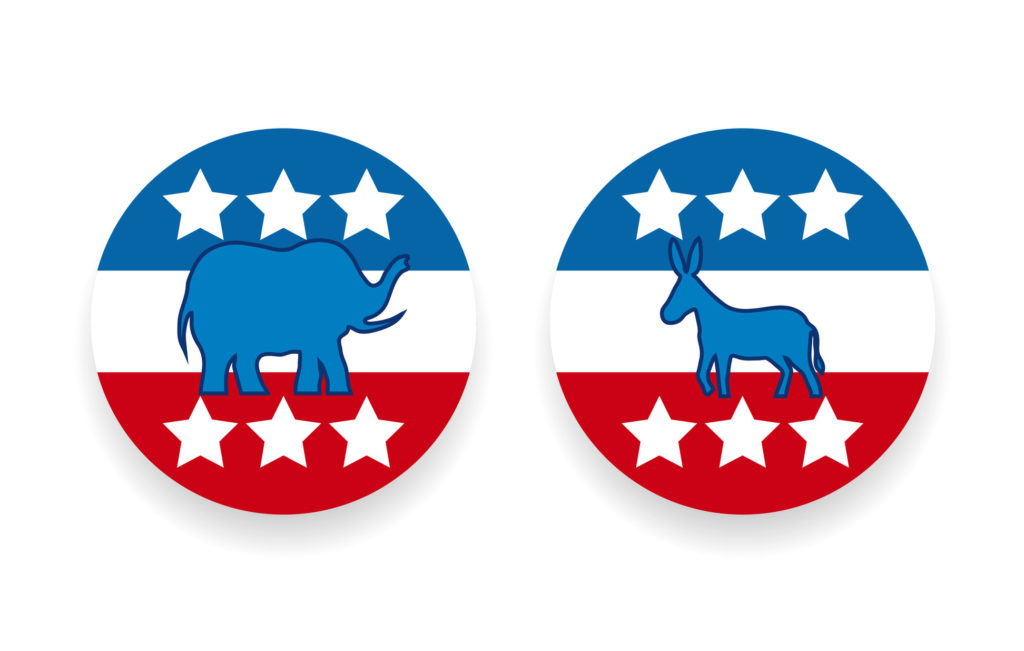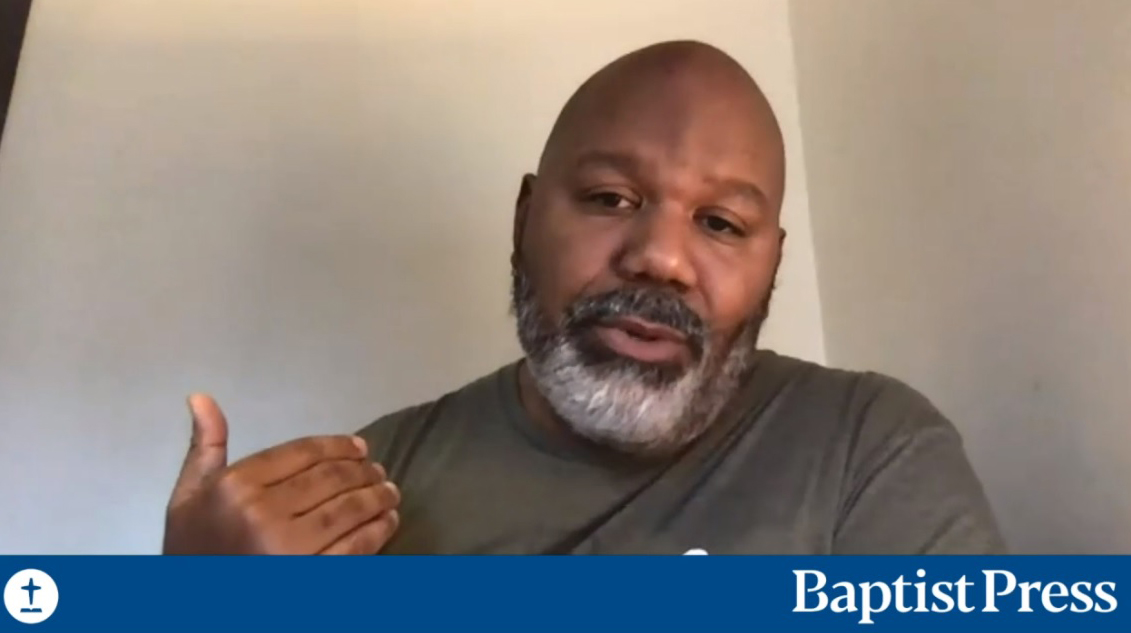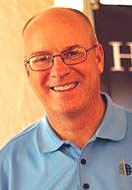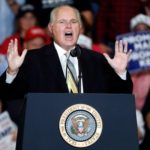
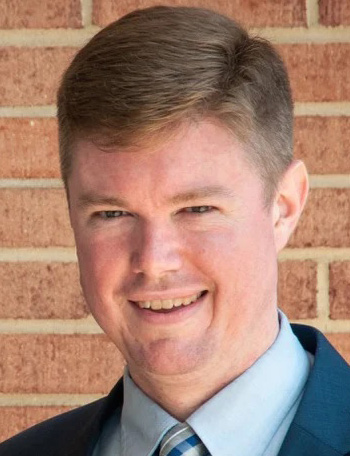 ALEXANDRIA, Va. – (AP/RNS) I stepped into the pulpit on Jan. 10 feeling an extraordinary weight. Four days earlier, 11 miles from our church, some of those protesting the certification of the presidential election broke through glass, beat police with American flags and precipitated an incursion into the U.S. Capitol.
ALEXANDRIA, Va. – (AP/RNS) I stepped into the pulpit on Jan. 10 feeling an extraordinary weight. Four days earlier, 11 miles from our church, some of those protesting the certification of the presidential election broke through glass, beat police with American flags and precipitated an incursion into the U.S. Capitol.
The weight came not only from the disorienting images of the day but also from the disparate ways I knew those hearing my sermon viewed the week’s events.
I knew that watching online was the mother of “Elizabeth from Knoxville,” whose brief interview (“We’re storming the Capitol; it’s a revolution!”) had been seen millions of times online.
In the sanctuary sat a woman who had been praying at the Capitol on Jan. 6 in support of President Donald Trump, another who accepted QAnon narratives and a young man who just returned from campaigning for Sen. Kelly Loeffler in Georgia.
Also in the room was a Black immigrant who, out of his experience of American racism, later told me, “They wouldn’t have reached the Capitol doors if they had been a different color.”
The “Never Trumpers” in my congregation were horrified by the president’s role in stoking the flames of grievance. A few members were so unnerved by the Capitol incursion they had sought out pastoral counseling.
Our church’s political diversity is representative of our broader diversity – white and Black, Anglo and Latino, immigrant and U.S.-born, Ph.D. and GED, homeless and uptown. The political spectrum our folks represent is more pronounced than most churches I know. But my guess is most churches are likely more politically diverse than even their leaders imagine, so you can appreciate the question that weighed me down that Sunday:
How do we as a church move forward together?
I don’t think we need a new program or the next expert to address this question. Rather, the answer is found in the fundamental elements of church life: worship, nurture and mission around the Gospel of Jesus Christ.
However, the fractures in old friendships along political lines force us to ask some difficult questions. For starters, do we really believe what we say we believe? Does our Christian faith truly transcend our political opinions? Pressing into this requires a dogged, at times relentless commitment to “maintain the unity of the Spirit in the bond of peace” (Ephesians 4:3).
What does this look like in real time?
It must begin with our worship. If, when we gather on Sunday morning, the first category that comes to mind for myself or another is whether they are for or against Donald Trump, Christian unity is dead in the water. Jesus’ model prayer challenges our priorities, lifting our attention from our leaders on earth to Our Father in heaven. The reputation of God’s hallowed name must trump political agendas and the prayer for God’s kingdom to come must supersede any longing for American greatness. At our church we seek to make these implications explicit in our worship service. When we breathe in the air of heaven, it should suffocate smugness or resentment over political differences.
This transcendent starting point is indispensable for our life of nurturing relationships with one another. This doesn’t mean avoiding divisive topics or uncomfortable conversations. Fixing our identity in spiritual reality should create a sturdy unity to our dialogue with one another about difficult issues. At various times over the last few years our church has dedicated our Wednesday night Bible study time to having moderated discussions around sexual abuse and healing, race relations and politics. These can be tense. Sometimes they spark private conversations as church members, in hushed tones, share with me their thoughts on a controversial matter, unsure if they can speak that opinion publicly. Whatever the mode of communication, the aim is to create a church culture where we can talk about hard things.
When it comes to politics, my priority is not conformity at the granular level of policy and politicians. The relationships I am called to nurture as a pastor are rooted in our shared trust in Jesus Christ. In this family we are called to empathy: “Rejoice with those who rejoice, weep with those who weep” (Romans 12:15). On the day Joe Biden’s victory became apparent, I was making pastoral phone calls and acknowledged the sorrow of a staunch Trump supporter and the excitement of a Biden fan. There can be no victory laps, no gloating in the family of God when our goal is connection in Christ.
I have seen these connections melt assumptions away. I saw it happen over a lunch when an older white man and two Black men shared their stories. Bonds were forged as experiences of exclusion and stereotyping resonated from very different backgrounds. I saw it happen over a dinner one of our deacons hosted. Around that feast, unfettered by 280-character limits, nuance revived as an immigrant couple expressed both disgust at Trump’s tone toward immigrants and acknowledgment of the ills in their community some of his rhetoric accurately described. I don’t think anyone changed their vote because of these interactions, but we walked away with deepened, nurtured relationships, feeling seen and known across racial, cultural and political lines.
The most significant unifying element in our church has been in our shared mission. We have served our community in a variety of ways, but when the pandemic hit, our weekly food ministry experienced a significant uptick. By the summer of 2020 we were serving five times the neighbors we had served the year before.
As our food ministry leader began sharing reports during our online service, donations of food and money poured in. Neighbors who saw the long lines started bringing groceries. More than one family spent their stimulus check to restock our shelves. Volunteers showed up to haul food, deliver boxes to homebound COVID referrals from the county, hand out Bibles, entertain the children in line, and offer prayer and the redemption that comes through trust in Christ.
The energy around this ministry has been one of the most gratifying things at our church over the last year, and it completely transcends voting habits, policy views on poverty and opinions about Trump among our volunteers. We have been too busy serving actual need to fight over what could be.
None of this minimizes the difficulty of building harmonious relationships in a politically diverse church. We often have those moments when, whether behind glances or spoken out loud, someone wonders, “How can you follow Jesus and support that politician?” or “How can you read the same Bible I’m reading and support that policy?” Building community amid disagreement requires tremendous trust — trust that God is greater than my understanding of how faith and politics fit together; trust that the other person truly loves God and me even though our views collide; trust that Jesus is big enough to hold us together.
The only way forward is the way upward. Grousing about a stolen election or doling out an “I told you so” will run us aground, belittling the grandeur of the Gospel and exposing the smallness of our faith. Only by walking in our shared identity and mission — all the while holding our political preferences, theories and assumptions loosely — can we move forward together after the Trump presidency.
Chris Davis is pastor of Groveton Baptist Church in Alexandria, Va. From Religions News Service via The Associated Press. May not be republished.
